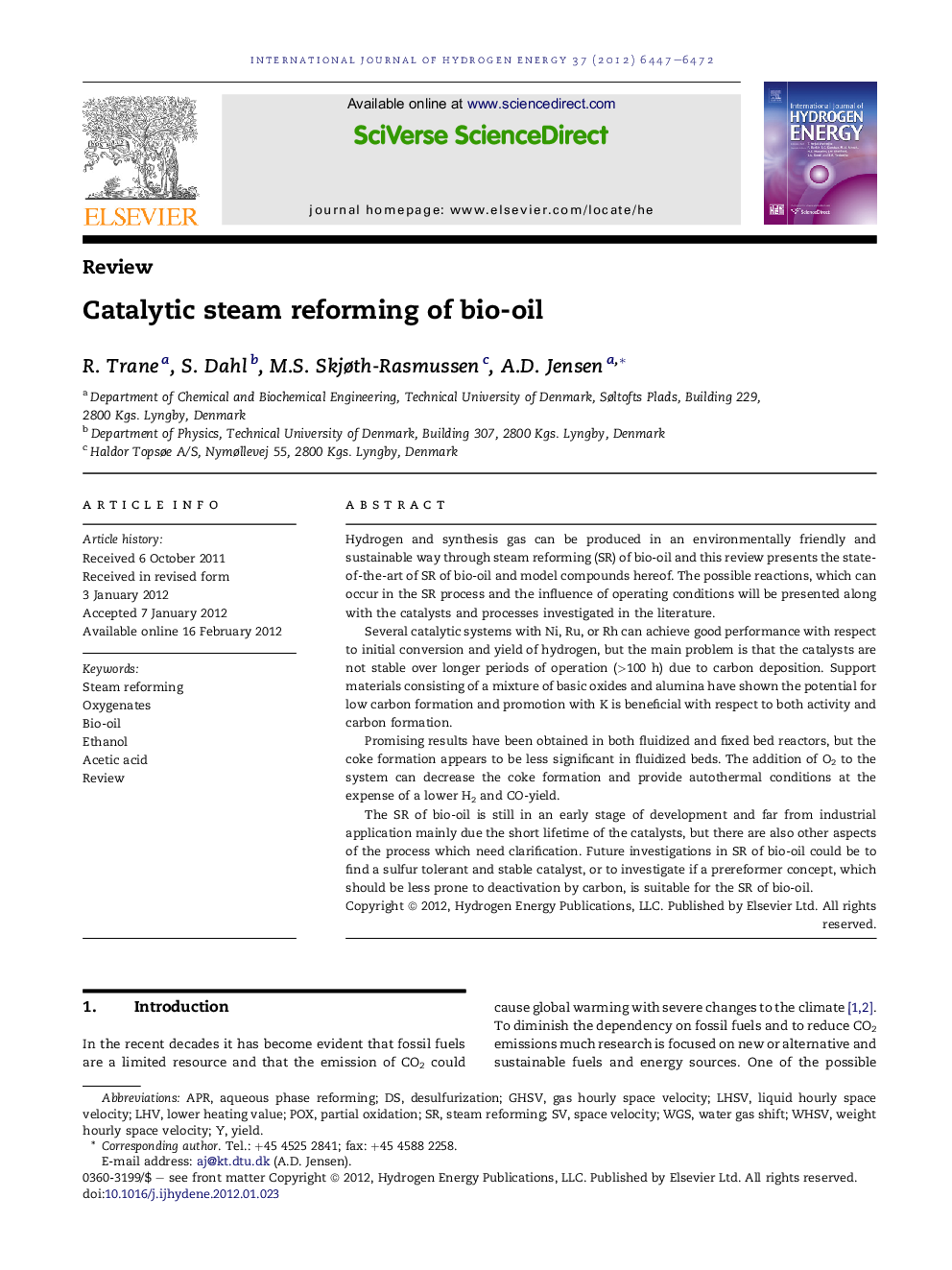| Article ID | Journal | Published Year | Pages | File Type |
|---|---|---|---|---|
| 1276586 | International Journal of Hydrogen Energy | 2012 | 26 Pages |
Hydrogen and synthesis gas can be produced in an environmentally friendly and sustainable way through steam reforming (SR) of bio-oil and this review presents the state-of-the-art of SR of bio-oil and model compounds hereof. The possible reactions, which can occur in the SR process and the influence of operating conditions will be presented along with the catalysts and processes investigated in the literature.Several catalytic systems with Ni, Ru, or Rh can achieve good performance with respect to initial conversion and yield of hydrogen, but the main problem is that the catalysts are not stable over longer periods of operation (>100 h) due to carbon deposition. Support materials consisting of a mixture of basic oxides and alumina have shown the potential for low carbon formation and promotion with K is beneficial with respect to both activity and carbon formation.Promising results have been obtained in both fluidized and fixed bed reactors, but the coke formation appears to be less significant in fluidized beds. The addition of O2 to the system can decrease the coke formation and provide autothermal conditions at the expense of a lower H2 and CO-yield.The SR of bio-oil is still in an early stage of development and far from industrial application mainly due the short lifetime of the catalysts, but there are also other aspects of the process which need clarification. Future investigations in SR of bio-oil could be to find a sulfur tolerant and stable catalyst, or to investigate if a prereformer concept, which should be less prone to deactivation by carbon, is suitable for the SR of bio-oil.
